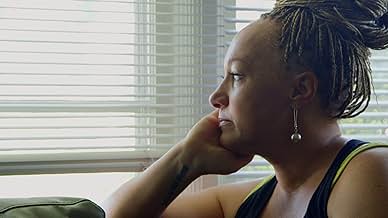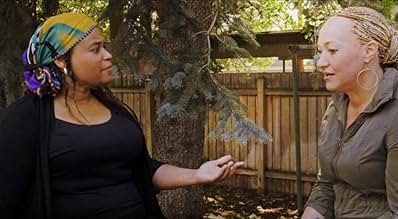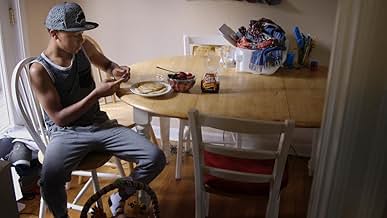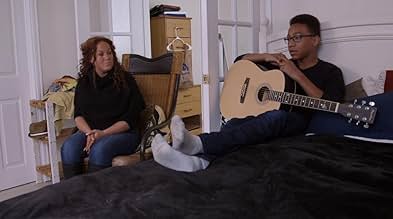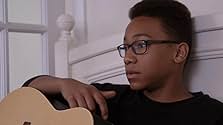CALIFICACIÓN DE IMDb
6.3/10
2.8 k
TU CALIFICACIÓN
Agrega una trama en tu idiomaRachel Dolezal becomes a social phenomenon when she passes herself off as an African American and becomes the head of her local N.A.A.C.P. chapter.Rachel Dolezal becomes a social phenomenon when she passes herself off as an African American and becomes the head of her local N.A.A.C.P. chapter.Rachel Dolezal becomes a social phenomenon when she passes herself off as an African American and becomes the head of her local N.A.A.C.P. chapter.
- Dirección
- Guionistas
- Elenco
- Premios
- 1 nominación en total
Vanessa Bayer
- Self
- (material de archivo)
Tamar Braxton
- Self
- (material de archivo)
- Dirección
- Guionistas
- Todo el elenco y el equipo
- Producción, taquilla y más en IMDbPro
Opiniones destacadas
While Rachel's story is interesting and raises many valid questions about race and identity, the viewer doesn't actually learn much about these topics. As a staple of Netflix documentaries, The Rachel Divide includes virtually no expert opinions or historical background or even contextual information - I would've loved to hear what actual scholars and researchers of race or identity think about this issue! - all we get is Rachel sharing her feelings and long scenes of her doing chores or talking to her family. And then of course a bunch of clips of people angrily reacting to the whole issue.
I think it's a massive missed opportunity and although the ending desperately wants to ask the viewer "well what do you think?" there is almost nothing to base our opinions on.
I think it's a massive missed opportunity and although the ending desperately wants to ask the viewer "well what do you think?" there is almost nothing to base our opinions on.
I went between laughing at her and feeling sorry for her. She's clearly got some emotional issues that need to be addressed at a professional level.
At the end of the day, especially in this day and age when people don't even know what gender they are and what bathroom they should use, who cares that she wants to be close to the black culture? Her problem isn't her mental issues, it's that she lied about it for so long and so publicly, nobody will sympathize now.
If she had just been truthful from the beginning, this documentary would have never been made.
I do find it very odd though that EVERYTHING she does is black. Black adoptions, black friends, etc. Must be what the Kardashians girls have? Not sure.
At the end of the day, especially in this day and age when people don't even know what gender they are and what bathroom they should use, who cares that she wants to be close to the black culture? Her problem isn't her mental issues, it's that she lied about it for so long and so publicly, nobody will sympathize now.
If she had just been truthful from the beginning, this documentary would have never been made.
I do find it very odd though that EVERYTHING she does is black. Black adoptions, black friends, etc. Must be what the Kardashians girls have? Not sure.
Gets off to a rough start, because for the first 20 or so minutes, it doesn't really present criticisms of its subject, doesn't provide much of her background at all, and really seems to just follow her around her life and make her seem sympathetic.
I found her actions were a little more understandable (though perhaps sympathetic would be a stretch) when the background context was finally provided, and they do have interviewees and stock footage (eventually) to show how and why Black people have a problem with her actions. I think they could have gone a little harder with showing more of these criticisms, but it is interesting to balance that with some sympathetic moments and leave it up to the audience to decide.
It's the fact that she is the first high profile person to commit to being "trans race" that makes her case unprecedented and divisive. I can recognise she doesn't think that choice was harmful, but in cases like this, I think you do have to listen to what others say, and if a good number of Black people give good reasons as to why they have a problem with it, you should listen and stop doing the offending behaviour.
Still, the multiple perspectives and fairly neutral tone of the documentary did make it a little more interesting. Otherwise, the slow start and competent but unimpressive presentation does weigh it down a bit.
Like all documentaries about controversial subjects, I could definitely understand someone watching this and hating every minute of it, but for me personally, I thought it a solid, sometimes quite interesting, but certainly far from great watch about a topic/subject that, to my knowledge, no other film or documentary has covered.
I found her actions were a little more understandable (though perhaps sympathetic would be a stretch) when the background context was finally provided, and they do have interviewees and stock footage (eventually) to show how and why Black people have a problem with her actions. I think they could have gone a little harder with showing more of these criticisms, but it is interesting to balance that with some sympathetic moments and leave it up to the audience to decide.
It's the fact that she is the first high profile person to commit to being "trans race" that makes her case unprecedented and divisive. I can recognise she doesn't think that choice was harmful, but in cases like this, I think you do have to listen to what others say, and if a good number of Black people give good reasons as to why they have a problem with it, you should listen and stop doing the offending behaviour.
Still, the multiple perspectives and fairly neutral tone of the documentary did make it a little more interesting. Otherwise, the slow start and competent but unimpressive presentation does weigh it down a bit.
Like all documentaries about controversial subjects, I could definitely understand someone watching this and hating every minute of it, but for me personally, I thought it a solid, sometimes quite interesting, but certainly far from great watch about a topic/subject that, to my knowledge, no other film or documentary has covered.
This documentary is well done and shows many sides of the saga of Rachel Dolezol. The saddest part of this story is how much her children suffer and because of her delusions and narsissm she cannot relate to what they are going through. She cares more about how she feels. Mental help for her and her boys would be very helpful. I liked seeing the perspectives of black folks who were apalled by her appropriation of black culture. I think her background tells us a lot about why she became who she is today. However, it was disturbing and focused on her book so much I wish it was shorter.
The story of Rachel Dolezal is an interesting one - a white woman pretends to be black and runs a local branch of the NAACP, lobbying for civil rights... only to be revealed by the media to actually be a white woman. The interviews in the media with her that follow the reveal are even stranger as she basically still claims to be black, because that's how she feels inside.
This documentary has to great footage compiled of this scandal and it raises some interesting questions, such as: In this current social landscape where a person can say they were born female but feel male inside (and vice versa) and choose to reassign their gender, why can't a person do that with race? You might find yourself vacillating between wondering if Rachel Dolezal is the first of many to come in a possible future landscape of racial reassignment, or you might just think she's crazy.
Regardless of your personal views on her, the problem with this documentary is that it starts out strong and peters out because the filmmakers don't have a feature's worth of interesting footage. The inside look into Rachel's life post-scandal is pretty mundane as she talks with family and friends, drives her sons to school, paints alone inside her house, etc. Perhaps they're trying to humanize Rachel, but in the end, I eventually got bored with it.
This documentary has to great footage compiled of this scandal and it raises some interesting questions, such as: In this current social landscape where a person can say they were born female but feel male inside (and vice versa) and choose to reassign their gender, why can't a person do that with race? You might find yourself vacillating between wondering if Rachel Dolezal is the first of many to come in a possible future landscape of racial reassignment, or you might just think she's crazy.
Regardless of your personal views on her, the problem with this documentary is that it starts out strong and peters out because the filmmakers don't have a feature's worth of interesting footage. The inside look into Rachel's life post-scandal is pretty mundane as she talks with family and friends, drives her sons to school, paints alone inside her house, etc. Perhaps they're trying to humanize Rachel, but in the end, I eventually got bored with it.
¿Sabías que…?
- Citas
Franklin: All my mom did is say she was black and people just lost their minds
Selecciones populares
Inicia sesión para calificar y agrega a la lista de videos para obtener recomendaciones personalizadas
- How long is The Rachel Divide?Con tecnología de Alexa
Detalles
- Tiempo de ejecución1 hora 40 minutos
- Color
- Relación de aspecto
- 1.85 : 1
Contribuir a esta página
Sugiere una edición o agrega el contenido que falta

Principales brechas de datos
By what name was The Rachel Divide (2018) officially released in India in English?
Responda

